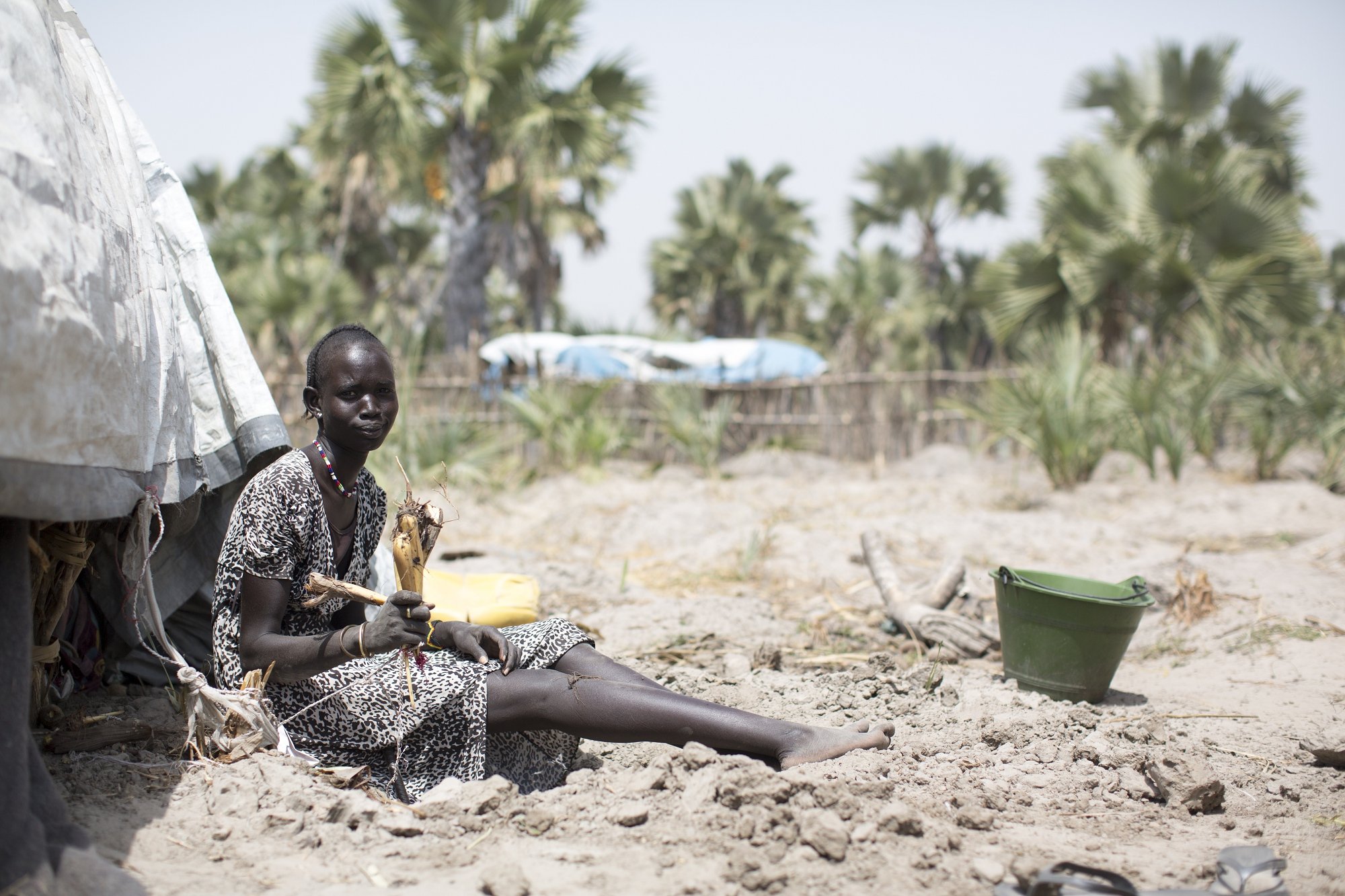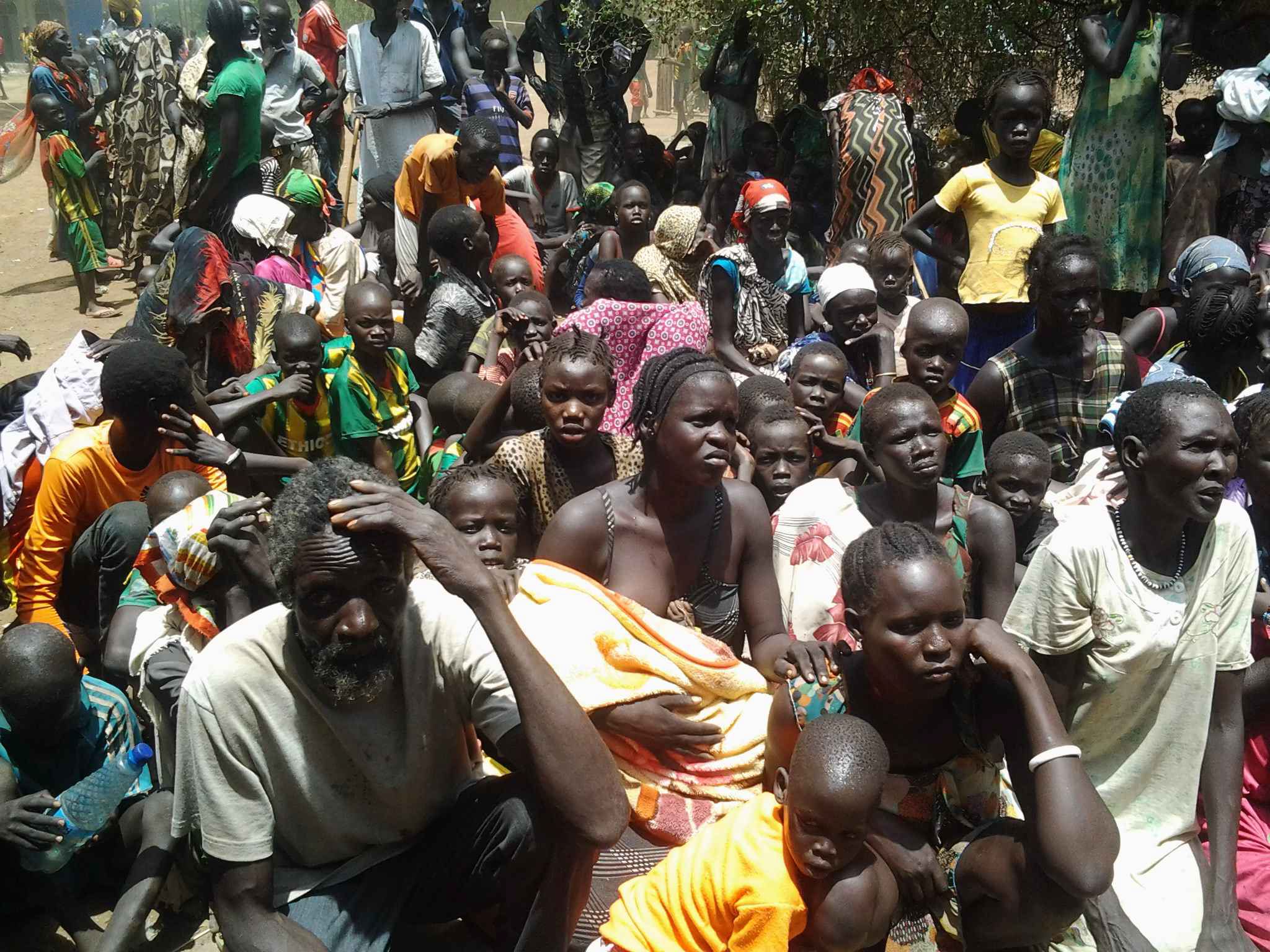From "Yes we can" to "Not again," two-time refugee loses hope amid Sudan fighting
From "Yes we can" to "Not again," two-time refugee loses hope amid Sudan fighting

TONGO, Ethiopia, November 15 (UNHCR) - Santino Samuel John has a recurring nightmare. In it, an Antonov plane drones overhead, swooping down on his home as his terrified son Obama runs to hide. But even when he wakes up, he finds himself living a real recurring nightmare of a refugee forced to flee his home for the second time.
John, 31, hails from Kurmuk in Sudan's Blue Nile state. In 1987, his family was driven out by civil war. "I remember when we fled Sudan and how my father struggled to carry me," he recalled, explaining how his polio-inflicted condition complicated their escape. "It got to a point where I asked him to leave me under a tree and to go on without me, because I was slowing the family's progress. He said that he would never leave me."
They crossed the border into neighbouring Ethiopia and struggled for another 55 kilometres to Tsore refugee camp, known today as Sherkole. They eventually ended up in Bonga refugee camp further south. In 2006, a year after the Comprehensive Peace Agreement brought an end to the war, the family returned to Sudan to rebuild their lives.
John found a job soon after, thanks to his father's insistence that he learn English as a child. Most recently, he worked in Kurmuk as a project coordinator for health, education and reconciliation at an NGO called Creative Associate International.
"For the first time in my life I could hold my head high alongside other nationalities because I was a citizen of a country - my country, Sudan," he said. "Granted, we didn't have much, but we had fundamental human rights which we could now enjoy as Sudanese citizens. Life was good for a while."
In September this year, fighting escalated between the Sudanese armed forces and the Sudan People's Liberation Army-North (SPLA-N) over the mineral wealth of Blue Nile state. John made a bunker under the family home.
They were determined to stay, but were eventually driven out by continued Antonov bombings and encroaching military ground forces. On October 6, the young family of five fled Kurmuk for Tongo camp in Ethiopia.
In the camp, John serves as a social worker and mediates between refugees and camp management on a host of issues. He is well-liked and respected across the camp, but his pleasant demeanour belies a troubled heart.
When the Sudanese military captured Kurmuk in early November, John's elderly parents and siblings were still in Chali, some 60 kms south. A friend told him that Chali's residents had evacuated the town and were heading south in the hope of crossing the Yamasra border point into Ethiopia and going on to Tongo camp.
"My parents are in their 70s and if they are with the group of people who have evacuated Chali, it will take them a long time to reach safety," said John. "They will have nothing but tubers and wild fruits to live on for most of the time, because if they make fires to cook, this will alert the troops to their location."
John thinks that his family may arrive in December or later, but he is in agony not knowing where they are. "I haven't had one night of peaceful sleep since I arrived in Ethiopia. Yes, I have a job but what of my family, my elderly parents? They looked after me as a child and my father would not abandon me. But now that they are in need, I cannot do the same."
He looks away, embarrassed by his helplessness and frustrated by the political situation in his country. "I named my youngest son Obama after America's president because America and Sudan were poised on the threshold of something new and exciting, something that offered hope and new solutions to the problems that had caused a lot of pain and suffering," John says.
"My boy would be one of a generation of Sudanese youth who would confidently say, 'Yes we can!,' but I'm not sure anymore. My beloved Sudan has let me down and once again I hang my head in shame."
As the evening draws near, he knows he is in for another sleepless night. "I eventually switch on my torch to read books and sometimes the Bible, which gives my troubled mind some peace," he says, showing the well-thumbed book. "If I could just see my parents, hug them, hold them, I would not want for anything else but for my children to complete their education."
He looks out across the plains surrounding the camp as though willing their safe journey to Ethiopia. "It's all I can think about."
Since early September, nearly 35,000 Sudanese refugees have arrived in western Ethiopia after fleeing conflict in Sudan's Blue Nile state.
By Pumla Rulashe in Assosa, Ethiopia








